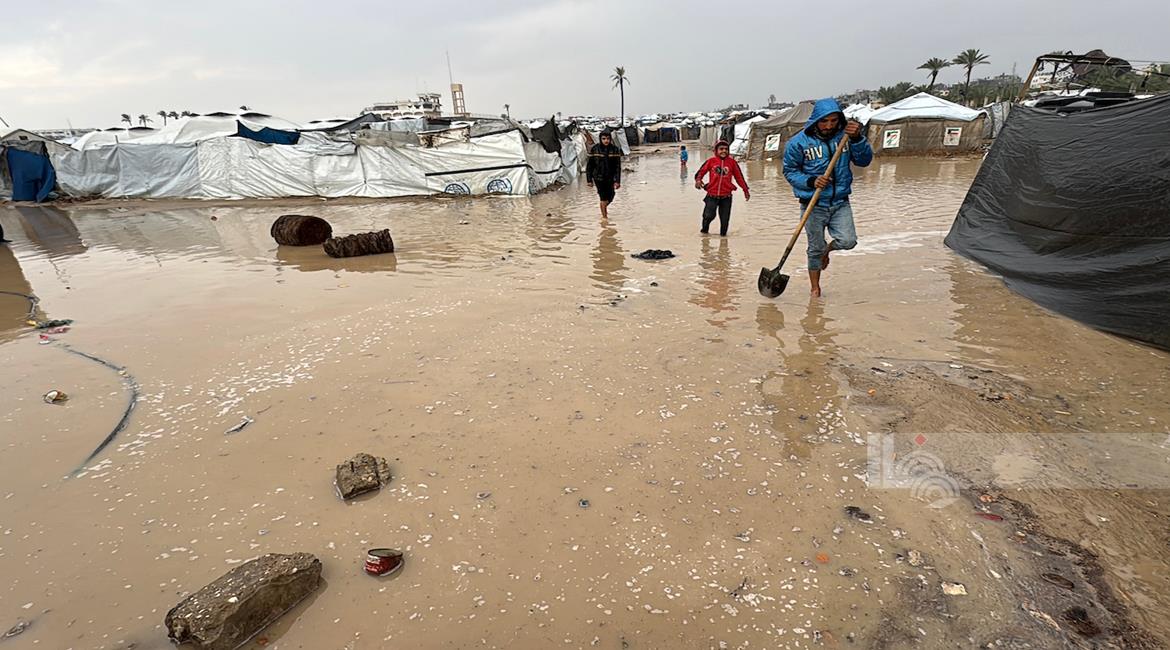By Hussein Senwar
GAZA, December 7, 2024 (WAFA) — In the heart of Gaza, residents are grappling with an overwhelming shortage of essential goods. Among the most critical shortages are baby formula and diapers, items that many families can no longer afford due to a devastating combination of war, economic collapse, and soaring inflation.
Omar Jasser, a father of two, found himself in a heated dispute with a vendor at a local market. The vendor had refused to offer a discount on three baby diapers that Jasser desperately needed for his daughter, citing the already inflated prices.
"We used to buy an entire pack for 20 shekels, containing 45 pieces," Jasser recalled. "Now, due to the war, we have to buy them one by one, and the cost of a single diaper exceeds 8 shekels, depending on the size and the vendor."
Like many others in Gaza, Jasser is struggling to meet his family's basic needs. "How can someone like me, unemployed and unable to provide for my family, manage when I can't even afford the diapers or milk for my child?" he said with frustration.
The situation is equally dire for Behaa Al-Shawish, a government employee who, despite having a steady monthly salary, finds himself unable to buy basic necessities due to the crippling economic conditions.
"The high commission fees to access my salary, reaching up to 30% or more, make it impossible to afford diapers and milk for my child," he explained. "Some diapers cost as much as 270 shekels for a box, and the cheaper options still reach 200 shekels. And even when I try to purchase online, it's even more expensive due to additional charges from the merchants."
The soaring prices and dwindling supplies of diapers and milk have led to rampant price gouging, with traders setting prices based on their own whims, often without any regulation or oversight. "These goods are becoming rare in the markets, and traders exploit the situation to sell at inflated prices, making it impossible for the average citizen to keep up," Al-Shawish added.
For families like Ahmed Al-Najjar's, the shortage of essentials has driven them to seek assistance from charitable organizations. These organizations provide a small portion of the much-needed items, though the demand far exceeds the supply. "Charities are doing their best, but it’s never enough," Al-Najjar said. "I’ve had to resort to using cloth rags instead of diapers because they are so expensive. The weather makes drying them difficult, adding to the challenges."
Ibrahim Awadallah, another resident, faces a double burden. In addition to struggling to find diapers for his young children, he also needs adult diapers for his elderly mother and his 15-year-old son, who suffers from a condition that causes bedwetting.
"I need at least five or six adult diapers a day, but they’re so expensive now, each one costing 15 shekels. It's become a huge part of our monthly expenses, and it affects everything else we need," he explained. "I urge traders and suppliers to have compassion for the citizens who are already suffering from the war and economic hardships."
While citizens like Awadallah, Jasser, and Al-Shawish are left to endure these hardships, the situation is equally difficult for the vendors selling these goods.
Ahmed Abu Mustafa, a local vendor, emphasizes that the price hikes are beyond their control. "We sell at the prices we buy from suppliers," he said. "If the prices from suppliers drop, we’ll lower our prices too. But right now, we have no choice but to sell at these inflated prices."
Merchant Mohamed Al-Madhoun attributes the price increases to a variety of factors, including the ongoing blockade, limited product availability, and the rising costs of transportation, especially from Israel.
"The closure of the borders, coupled with the transportation costs, has led to higher prices for essential goods like diapers and milk. If traders stop importing these items, they will disappear from the market altogether, and the costs will skyrocket."
For the past 14 months, Gaza has been in the midst of an ongoing crisis. The Israeli onslaught, compounded by the severe economic strain and blockades, has made it increasingly difficult for families to afford basic necessities. The shortage of essential goods like milk and diapers has pushed residents to the brink of desperation, as they struggle to survive amidst the soaring costs and scarcity.
The dire situation has created a harsh reality for the people of Gaza, where every day is a battle not just for survival, but for the ability to care for their loved ones.
M.N













